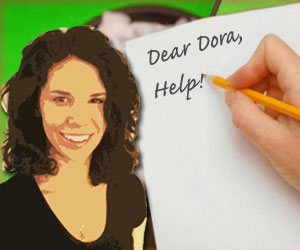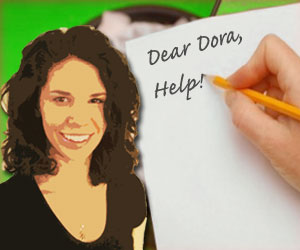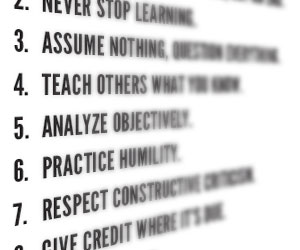 We’re three weeks into the new year. By now, most of us have decided that the “all organic raw nuts and berries” diet we were so gung ho about probably isn’t going to make it into February. Nor is the six-days-a-week workout schedule we undertook on January 2nd, after the hangover wore off. For now, three days a week will do. By March, we won’t even remember which gym we signed up with. Reflecting upon the over-optimistic personal goals we set for ourselves every January, we pondered whether their were rules of a scientist’s life that we should adhere to at all times, regardless of the month.
We’re three weeks into the new year. By now, most of us have decided that the “all organic raw nuts and berries” diet we were so gung ho about probably isn’t going to make it into February. Nor is the six-days-a-week workout schedule we undertook on January 2nd, after the hangover wore off. For now, three days a week will do. By March, we won’t even remember which gym we signed up with. Reflecting upon the over-optimistic personal goals we set for ourselves every January, we pondered whether their were rules of a scientist’s life that we should adhere to at all times, regardless of the month.
Flyceum: Your Science. Your Career.
We’re following in the tradition of open discussions among scientists that has resulted in important advances in both science and society.
Rules of a Scientist’s Life
by
2012: A Killer Year Impossible Without You…and You…and You
by
How Long is Acceptable for Holiday Vacation?
by
I am a new PhD student and I relocated several states away from my home to attend graduate school. I am looking forward to going home for the holidays but I am unsure of how long is appropriate to be away from the office. I am not going home for Thanksgiving but I would like to take as much time as I can to enjoy my family during the Christmas season. What are the expectations/norms for graduate student time off around the holidays? Is there an ‘unspoken rule’ that even if we are home for the holidays that we should still be working?
Thank you,
First-year PhD student
My Postdoc Story: World Traveler
by
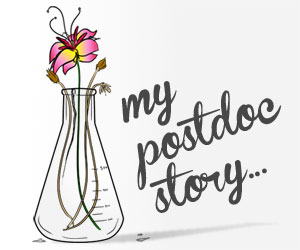 While nearly all of us face challenges during our postdoctoral years, we often feel alone in our struggles. In this series, we hope to share encouraging and uplifting stories of how other scientists were able to turn their situation around and move forward, despite a non-ideal situation. Like snowflakes, fingerprints, and nightmares, every postdoctoral experience is unique, so today we share the Postdoc Story of another successful scientist.
While nearly all of us face challenges during our postdoctoral years, we often feel alone in our struggles. In this series, we hope to share encouraging and uplifting stories of how other scientists were able to turn their situation around and move forward, despite a non-ideal situation. Like snowflakes, fingerprints, and nightmares, every postdoctoral experience is unique, so today we share the Postdoc Story of another successful scientist.
Graduate School: How Long is Too Long?
by
How long is *too* long to be in grad school? There’s a 9th year in our department and it scares the life out of me. What do you think?
-Alexa, second-year graduate student
Small Brains, Big Ideas: Inspiring Latin American Scientists
by
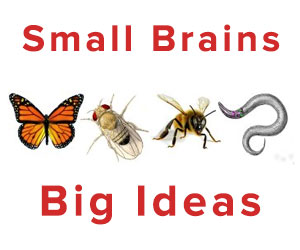 As graduate students, it can be tempting to fall into the role of “seen and not heard”, believing that our larger contribution to science will have to wait until our name has a more commanding title to it. But two entrepreneurial scientists prove that with initiative, vision and determination, changing the face of science is possible at any time.
As graduate students, it can be tempting to fall into the role of “seen and not heard”, believing that our larger contribution to science will have to wait until our name has a more commanding title to it. But two entrepreneurial scientists prove that with initiative, vision and determination, changing the face of science is possible at any time.
Is A Parasitic Postdoc Trying to Steal Your Project?
by
It has been a few months since I started my first postdoc after finishing my PhD in a different field. Initially I used to discuss my experiments with a senior postdoc on the project (who works part time) to help with the interpretation of the results. However, now after a few months of catching up with the literature I seem to have a handle of the project and my experiments are working very well. I openly share my experiments and thoughts for future experiments. But during meetings and in private discussions with our PI this postdoc has labelled my work as “our work” and has been passing off my ideas as his own.
Is the NIH Minimum Salary Binding for All?
by
Does the NIH minimum salary for postdocs only apply to people who are funded on NIH grants, or is it a general benchmark? I think I’m being paid below the NIH minimum, but I’m not on an NIH grant so I don’t know if there’s any course of action to take to increase my salary.
RO, Postdoctoral Fellow
My Postdoc Story: Research and Application Scientist, Anonymous
by
 While nearly all of us face challenges during our postdoctoral years, we often feel alone in our struggles. In this series, we hope to share encouraging and uplifting stories of how other scientists were able to turn their situation around and move forward, despite a non-ideal situation. Like snowflakes, fingerprints, and nightmares, every postdoctoral experience is unique, so today we share the Postdoc Story of another successful scientist.
While nearly all of us face challenges during our postdoctoral years, we often feel alone in our struggles. In this series, we hope to share encouraging and uplifting stories of how other scientists were able to turn their situation around and move forward, despite a non-ideal situation. Like snowflakes, fingerprints, and nightmares, every postdoctoral experience is unique, so today we share the Postdoc Story of another successful scientist.
Leaving the Bench: The Webinar
by
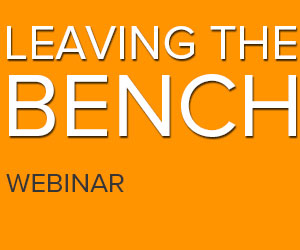 There comes a time in many researchers lives when they realize it’s time to move on. Like professional athletes struggling with the decision when to retire, researchers face a flood of emotions that can cloud decision-making and leave us unsure of what to do next. This feeling of paralysis leaves our career development in the hands of others who end up making the tough decisions for us — not a good place to be. Today in a webinar with our friends over at BioCareers, I’ll discuss how to take a page out of the entrepreneur’s playbook to take control of your career development and discover what it is you were meant to do — all from the comfort of your computer!
There comes a time in many researchers lives when they realize it’s time to move on. Like professional athletes struggling with the decision when to retire, researchers face a flood of emotions that can cloud decision-making and leave us unsure of what to do next. This feeling of paralysis leaves our career development in the hands of others who end up making the tough decisions for us — not a good place to be. Today in a webinar with our friends over at BioCareers, I’ll discuss how to take a page out of the entrepreneur’s playbook to take control of your career development and discover what it is you were meant to do — all from the comfort of your computer!


